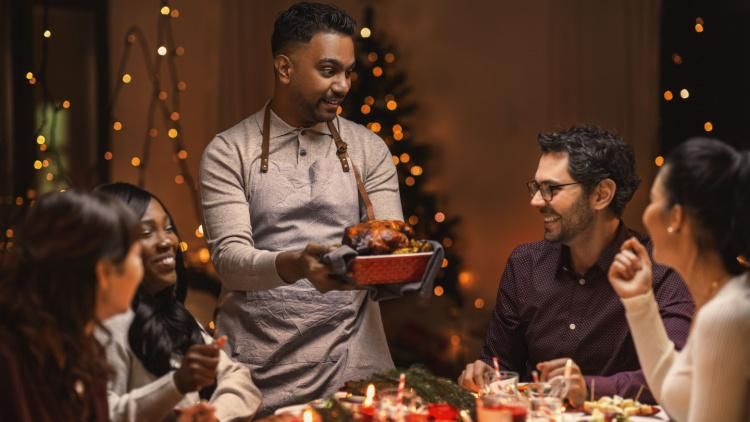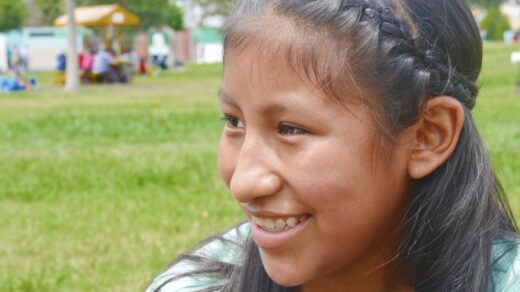Why Chosen Family Is Even More Important During the Holidays
Author: Brandon Tensley

(CNN) — A version of this story appeared in CNN’s Race Deconstructed newsletter.
About halfway into the winter finale of the workplace sitcom “Abbott Elementary,” we learn why the corny history teacher Jacob, played by Chris Perfetti, is a Christmas killjoy: “Look,” he says, “Christmas is not my favorite thing, OK? I don’t have a lot of good memories around it.”
Jacob, who’s gay, never elaborates. But as I watched the scene, I thought about how lots of queer people feel a similar unease around Christmas. The holiday often centers conventional dynamics in the home and biological family: Good tidings we bring to you and your kin, goes part of the refrain of one classic yuletide carol. Yet for queer people who aren’t out to their biological families, or who are but have been rejected by them, Christmas can be fraught.
This tension underscores the importance of relationships beyond traditional kinship bonds — of those crucial connections known as chosen family.
The New York Times recently interviewed the members of five chosen families and snapped into focus the “sense of hope, and home,” they’ve found in one another.
Lenny Lasater, 65, told the newspaper that when she was 19, her mother found love letters from a girlfriend.
“‘I would literally rather see you lying dead in a casket than to know this about you,'” Lasater recalled her mother seething.
In her early 20s, Lasater, largely estranged from her biological family, moved to Georgia, where she found her chosen family: the Bickersons, a group of queer women who gather for holidays and other occasions and who just generally stick up for one another.
“We didn’t have to censor,” Lasater told the New York Times. “We were real, we were honest and we could expect to be met with compassion and understanding.”
To further discuss the significance, the joy, of defying kinship norms, especially during Christmas, I spoke with Marisa Franco, a psychologist at the University of Maryland and the author of the 2022 book, “Platonic: How the Science of Attachment Can Help You Make — and Keep — Friends.”
Our conversation has been lightly edited for length and clarity.
Part of what your book discusses is how we, as a society, minimize non-romantic relationships. Could you explain this dynamic?
I think that many of us are fed the message that we need to find a romantic partner to be complete, which suggests that after you find that romantic partner, you don’t need anyone else in your life, that there’s just one person who can complete you. But we know, according to the research, that you need an entire community to feel whole.
There are three types of loneliness; only one can be filled by a traditional spouse, which is intimate loneliness — desire for close, intimate connection. But there’s relational loneliness, which is desire for someone as close as a friend. And there’s collective loneliness, which is desire to be part of a group working toward a common goal.
I think that all of this explains why, during the pandemic, many of us might have been living with our partners but still felt really lonely, because there are different dimensions of loneliness that require us to be in community with others in order to feel complete.
Tell me a bit about why these different connections might be especially important for queer people.
Lots of queer people feel like, in their families of origin, they can experience authenticity or connection — not both. But in these chosen families, they can really experience authenticity and connection. They can show up as their full selves and still be loved, rather than have to contort themselves in order to feel loved and accepted by others.
I think that if we really, truly value friendship at the same level as familial relationships, at the same level as romantic relationships, we can see that, if you’ve lost the members of your family of origin and are estranged from them, that that can also be an offering for something new. You can fill that space with different types of connections.
Many times when we think, “I don’t have a romantic partner” or “I don’t have close relationships with my family of origin,” we take this deficit-based approach and assume, “Oh, now I’m going to have inferior forms of connection.” But if we elevate the status of friendship, we can, and should, think, “It’s OK if I don’t have those connections. I have offerings for new types of connections. I can choose people who make me feel loved, who make me feel safe.”
What can we learn from other marginalized communities, such as Black communities, about challenging prevailing notions of kinship?
What Black communities reveal — and I think that this is true for a lot of non-White communities, such as Filipino communities — is that family is a social construct. That’s from Kath Weston. She has a book, 1997’s “Families We Choose: Lesbians, Gays, Kinship,” and that’s what she argues. It’s the idea that we can take all the things we ascribe to family and ascribe them to anyone.
We can consent to doing all the things that family members might traditionally do for one another, whether that’s supporting one another financially, which I think you tend to see in more marginalized communities, or providing other kinds of instrumental support: “I’ll pick you up from the airport,” “I’ll buy you some groceries,” “I’ll take care of you when you’re sick.”
The only thing that limits those behaviors to family is, I think, a lack of exposure to alternative methods of living that Black communities and other communities give us.
I think that friendship is just so versatile, and that a friendship can be whatever you want it to be. It can be a once-a-month lunch friend. It can be a life partner. It can be anything in between. Our perception of friendship is just so narrow to our great loss, because we’re such a lonely society, and loneliness is such a subjective experience. That means that if you have friends in a society that tells you that these friendships don’t really matter, you can still feel lonely. Elevating the status of friendship will lead to friendship playing a greater role in mitigating loneliness.
That’s all to say: Let’s think more creatively about friendships and give ourselves permission to love our friends deeply, to allow them to play roles we traditionally associate with family or romantic partners, to disrupt these very limited scripts we have for friendship.
The-CNN-Wire
™ & © 2022 Cable News Network, Inc., a Warner Bros. Discovery Company. All rights reserved.
Related: How One Nonprofit Is Looking to Help Estranged LGBTQ+ People
Original Article on The Advocate
Author: Brandon Tensley




